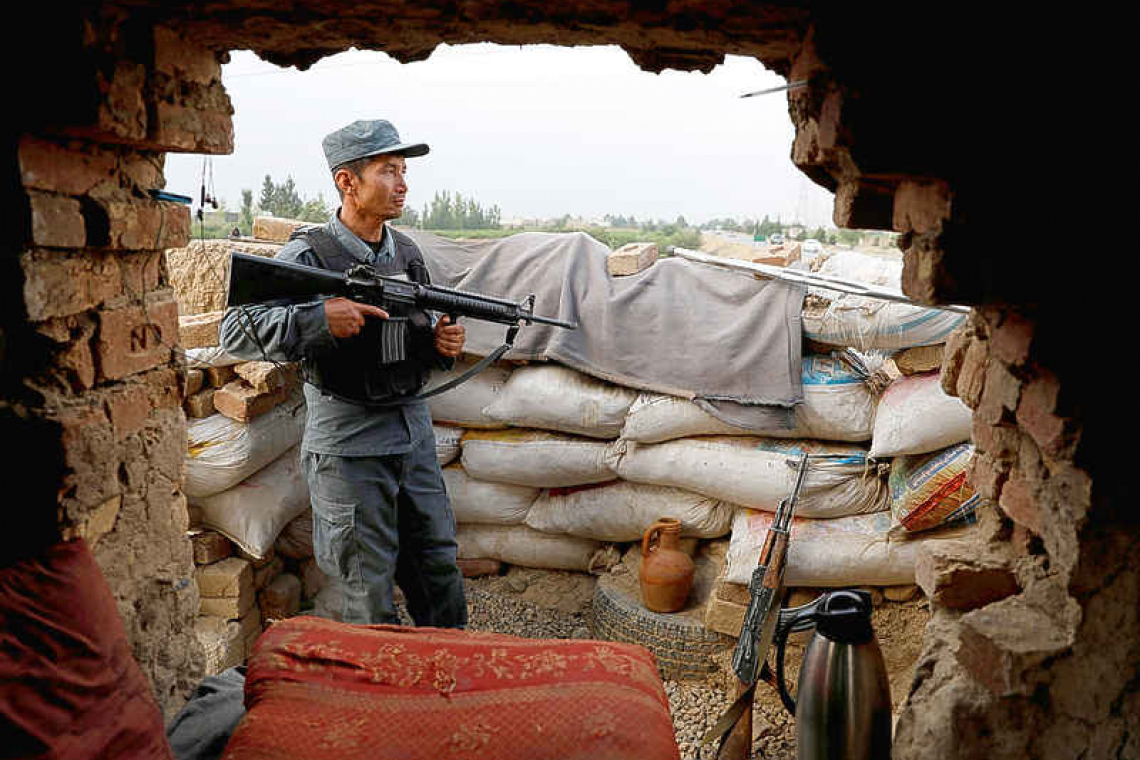KABUL--Reeling from a surge in battlefield losses, Afghanistan's military is overhauling its war strategy against the Taliban to concentrate forces around the most critical areas like Kabul and other cities, border crossings and vital infrastructure, Afghan and U.S. officials say.
The politically perilous strategy will inevitably cede territory to Taliban insurgents. But officials say it appears to be a military necessity as over-stretched Afghan troops try to prevent the loss of provincial capitals, which could deeply fracture the country.
The consolidation of forces, which has been publicly acknowledged but not reported in such detail before, coincides with the U.S. military withdrawal ahead of a formal end to the military mission on Aug. 31, on orders from President Joe Biden.
Taliban insurgents are gaining control of more and more territory, which the Pentagon estimated on Wednesday now extends to over half of half Afghanistan's district centers. The Taliban are also putting pressure on the outskirts of half of the provincial capitals, trying to isolate them.
U.S. intelligence assessments have warned that the Afghan government could fall in as little as six months, U.S. officials told Reuters.
One Afghan official, speaking on condition of anonymity, said the "reorientation" of troops would help Kabul hold strategic territory and defend infrastructure, including a dam built with India's assistance, and major highways. But consolidating troops also means leaving other areas unguarded, a hard sell to Afghan communities or ethnic groups who will feel they are being abandoned to the Taliban.
"How do you communicate this to a public that has been jittery - and understandably so - over the past few weeks in which the Taliban have been taking over districts?" the Afghan official asked. "Because a major part of this reorientation would entail, at least in the short term, the Taliban filling in the vacuum that we're leaving behind."
U.S. Army General Mark Milley, chairman of the Joint Chiefs of Staff, said the strategy would involve "giving up district centers" to protect larger population centers, like the capital Kabul. He said the Taliban appeared to have "strategic momentum."
"There's a possibility of a complete Taliban takeover or a possibility of any number of other scenarios," Milley told a news conference on Wednesday, adding: "I don't think the endgame is yet written."
U.S. Marine General Kenneth McKenzie, commander of U.S. Central Command, which oversees U.S. forces in Afghanistan and support to Afghan troops, said after being briefed on the plan this month the Afghans knew they had to pick their battles. "You can't defend everything. If you defend everywhere, you defend nowhere. So I think the Afghans realize they need to consolidate," McKenzie said, without offering details.
He noted years-old U.S. concerns about how Afghan forces were manning checkpoints, including in remote or hostile areas that are particularly vulnerable or serve little strategic value. "So, I think now they're now in the process of recognizing you got to pull back, you got to consolidate, you got to defend those areas that are absolutely critical," McKenzie said.
The Afghan ministry of defense did not immediately respond to a request for comment.







